Articles
In 2023, the Indo-Pacific was something of a backdrop to India’s robust global activities, including the presidency of the Group of Twenty (G20), chairing for the first time the Shanghai Cooperation Organization summit, participating in the Group of Seven summit, convening for the first time the Voice of Global South summits, and co-chairing with the United States the Partnership for Global Infrastructure and Investment and the India-Middle East-Europe Economic Corridor initiatives launched on the sidelines of the September G20 Summit in Delhi. Comparatively, India’s Indo-Pacific engagements were less high-profile and leader-led but still numerous and active. India’s low-level but wide-ranging defense diplomacy is particularly noteworthy. Prime Minister Modi and External Affairs Minister Jaishankar, while pre-occupied by India’s role in global diplomacy, made important visits in the Indo-Pacific, with the PM making four country stops on two regional trips to the region; the first in May to the G7 Summit in Hiroshima, followed by stops in Papua New Guinea and Australia, and another in September to Jakarta, Indonesia for the annual ASEAN-led summit meetings, including the annual India-ASEAN dialogue.
The prime minister used both trips to engage bilaterally with multiple Indo-Pacific leaders. External Affairs Minister Jaishankar and Defense Minster Rajnath Singh also made notable Indo-Pacific visits. And, of course, a number of Indo-Pacific leaders and ministers visited India.
India-China Relations
By 2022 standards of nearly zero contacts between senior Indian and Chinese officials, 2023 saw a “thaw” with two ministerial level meetings—but next to no fundamental change regarding differences on border disputes and President Xi’s decision to not attend the September G20 summit hosted by India. In early March, China’s Foreign Minister Qin Gang met India’s External Affairs Minister S. Jaishankar on the sidelines of the G20 Foreign Ministers’ Meeting in New Delhi. China’s readout of the meeting emphasized overall bilateral relations: “The two sides should put the boundary issue in an appropriate position in bilateral relations and work for the regular management of border areas at an early date.” India rejected such a position with Jaishankar saying talks “focused on addressing current challenges to the bilateral relationship, especially peace and tranquility in the border areas.” In April, in another ministerial-level meeting, India’s Raksha Mantri (Minister of Defense) Rajnath Singh met China’s State Councilor and Minister of National Defense General Li Shangfu in New Delhi. Minister Singh “categorically conveyed [emphasis added] that development of relations between India and China is premised on prevalence of peace and tranquility at the borders. He added that all issues at the LAC [line of control] need to be resolved in accordance with existing bilateral agreements and commitments. He reiterated that violation of existing agreements has eroded the entire basis of bilateral relations and disengagement at the border will logically be followed with de-escalation.”
Other meetings/interactions between India and China were lower-level and focused on their ongoing border dispute. In February, the first in-person meeting since 2019 of the Working Mechanism for Consultation & Coordination on India-China Border Affairs (WMCC) was held in Beijing to discuss proposals for disengagement in the remaining areas and create conditions for restoration of normalcy in bilateral relations. Another WMCC meeting was held in May. Neither produced notable progress on the border issue. Nor did two rounds (the 18th and 19th) of the India-China Corps Commander Level Meetings in April 2023 and August. In April a brief contretemps emerged over China renaming places in India’s state of Arunachal Pradesh, which led an Indian government spokesman to respond “We have seen such reports. This is not the first time China has made such an attempt. We reject this outright. Arunachal Pradesh is, has been, and will always be an integral and inalienable part of India. Attempts to assign invented names will not alter this reality.”
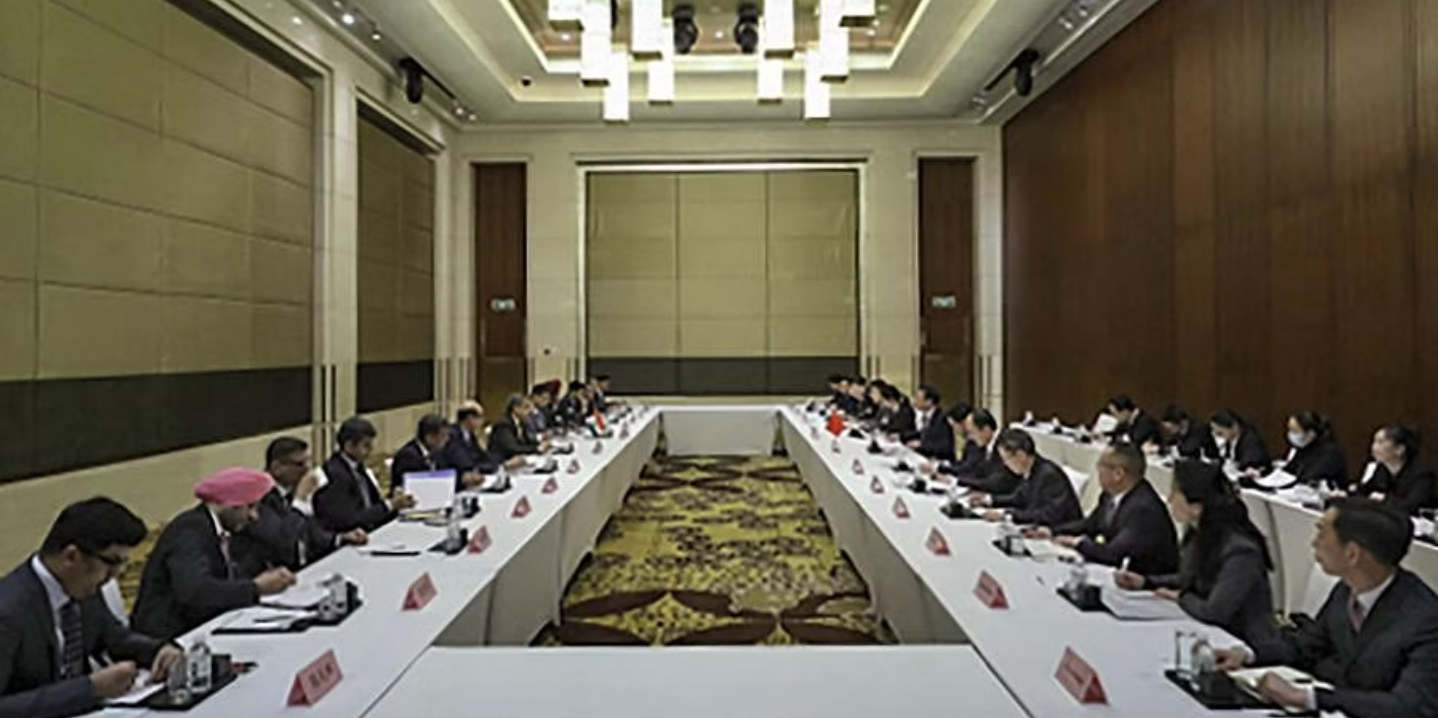
Figure 1 Beijing: Indian and Chinese officials hold an in-person meeting of the China-India Border Affairs Consultation and Coordination Working Mechanism (WMCC) in Beijing on Feb 22, 2023. Photo: PTI
Neither produced notable progress on the border issue. Nor did two rounds (the 18th and 19th) of the India-China Corps Commander Level Meetings in April 2023 and August. In April a brief contretemps emerged over China renaming places in India’s state of Arunachal Pradesh, which led an Indian government spokesman to respond “We have seen such reports. This is not the first time China has made such an attempt. We reject this outright. Arunachal Pradesh is, has been, and will always be an integral and inalienable part of India. Attempts to assign invented names will not alter this reality.”
India-Australia Relations: Advancing the “Comprehensive Strategic Partnership”
India-Australia relations in 2023 were active across leader visits, diplomacy, and defense. External Affairs Minister Dr. S. Jaishankar met Prime Minister Anthony Albanese, Foreign Minister Penny Wong, and Defense Minister Richard Marles in February. This visit prepared the details for the first India-Australia annual summit on March 10, 2023, during the state visit of Australian Prime Minister Albanese to India—his first bilateral visit since becoming prime minister. He also became the first foreign head of government to visit INS Vikrant, India’s new aircraft carrier. On board, he noted that Australia, for the first time since joining the Malabar exercise in 2020, will host the 27th edition of the annual multilateral naval wargaming exercise including the US, India, and Japan.
Indian Prime Minister Narendra Modi made a bilateral visit to Sydney on May 23-24, originally for the purpose of the Quad Summit but ultimately held earlier on May 20 on the sidelines of the G7 summit in Hiroshima after US President Joe Biden canceled his attendance at the second summit. The prime minister, rather than cancel his visit to Australia, continued on. A discordant issue was the safety of the Indian community and attacks on temples in Australia. Both prime ministers shared an ambition for an early conclusion of the Comprehensive Economic Cooperation Agreement (CECA) and announced finalization of the Australia-India Migration and Mobility Partnership Arrangement, which will facilitate exchanges of students and businesspersons and reduce illegal migration.
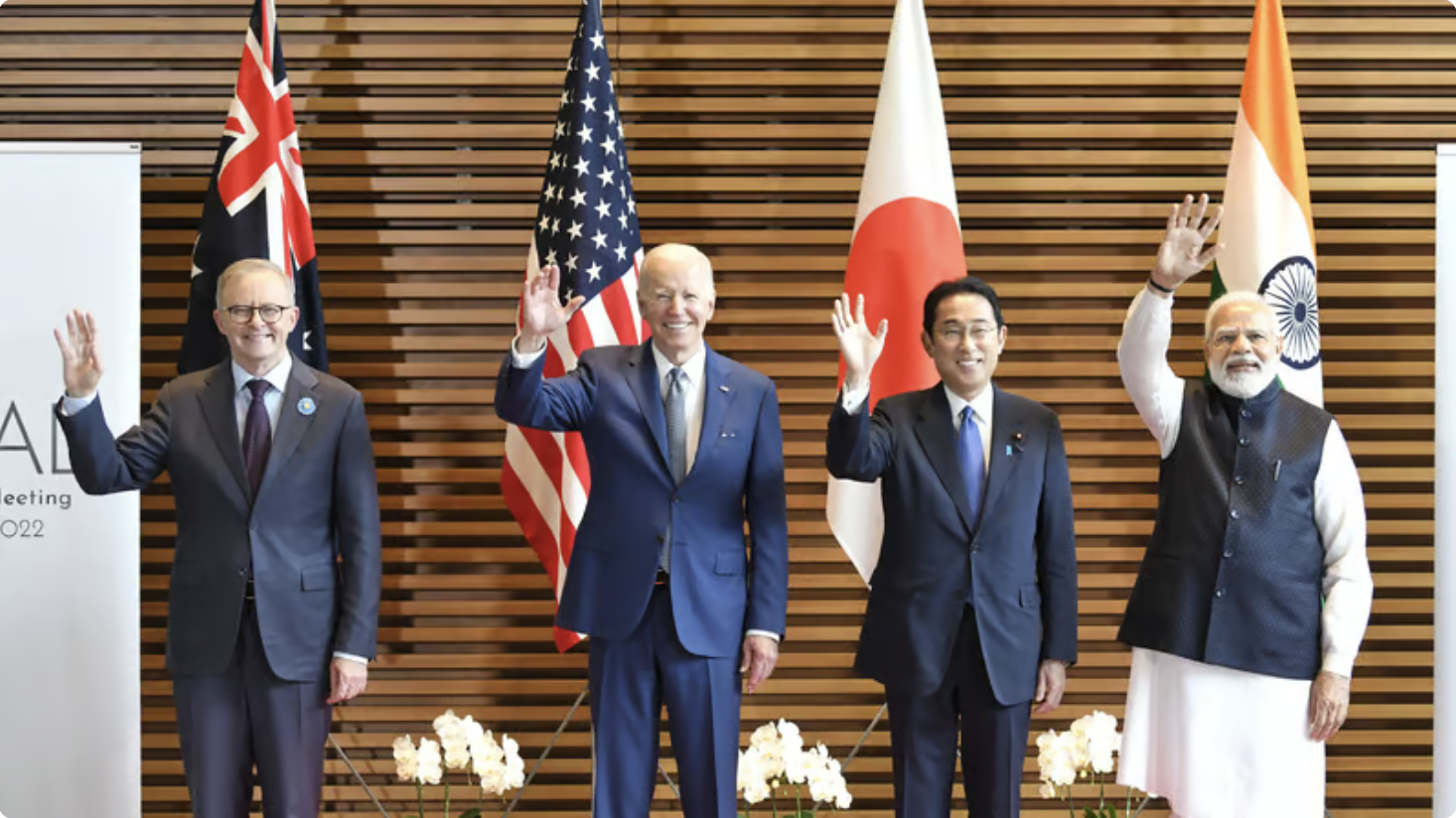
Figure 2 Prime Minister Narendra Modi (extreme right, along with United States President Joe Biden, Australian Prime Minister Anthony Albanese, and Japanese Prime Minister Fumio Kishida, during Quad Leaders’ Summit in Tokyo last year. Photo: Press Information Bureau
Defense and security ties during the year included exercises, service chiefs’ visits, new initiatives such as the inaugural General Rawat India-Australia Young Officer Defense Exchange Programme, under which 15 young Australian officers visit India and 15 Indian officers travel to Australia in 2024. V. Adm. Mark Hammond, chief of Navy, Royal Australian Navy, visited India in March to meet his counterpart Chief of Naval Staff Adm. Hari Kumar. India’s Chief of Army Staff Gen. Manoj Pande visited Australia in April. The 8th session of the India-Australia Defense Policy Talks (DPT) was held in Canberra in July. Both sides agreed for early finalization of a hydrography agreement.
India-Pacific Islands
India-Pacific Islands relations in 2023 revolved around Prime Minister Modi and Prime Minister James Marape of Papua New Guinea (PNG) jointly hosting the Third Summit of the Forum for India-Pacific Islands Cooperation (FIPIC) at Port Moresby on May 22 and including 14 Pacific Islands countries. PNG’s hosting was significant in that it is one of the few Pacific Island countries with a mission in India and was represented at the Leaders’ session of the 1st Voice of the Global South Summit in India in January. This was the first visit by an Indian prime minister to PNG.
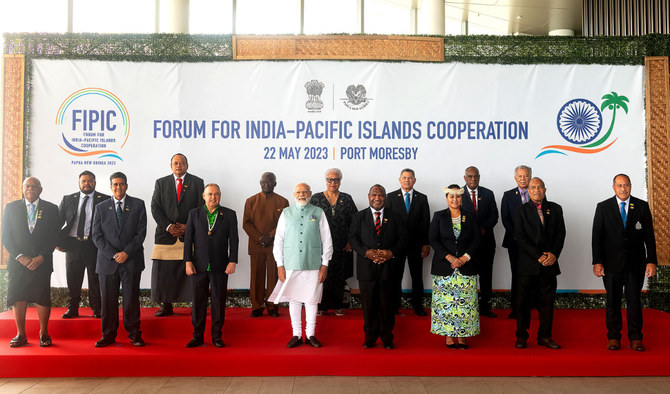
Figure 3 Prime Minister Narendra Modi poses with leaders of the Forum for India-Pacific Islands Cooperation (FIPIC) in Port Moresby, Papua New Guinea, Monday, May 22, 2023. Photo: AFP
Prime Minister Modi’s opening remarks at the summit focused on the Pacific Islands countries’ input at the Voice of the Global South summit, but also noted that India’s presence at the G7 and membership in the Quad has direct implications for India-Pacific Island country relations—noting, for example, that in the “Quad meeting, we have taken decision to establish the Radio Access Network (RAN) in Palau. In a plurilateral format, we will enhance partnership with Pacific Island countries.” He welcomed hearing that the Sustainable Coastal and Ocean Research Institute (SCORI) has been established at the University of the South Pacific in Fiji to connect India’s experiences in sustainable development with the vision of Pacific Island countries. He expressed delight that the launch of the website for space technology is taking place for national and human development, allowing the downloading of remote sensing data from the Indian satellite network to be utilized in Pacific Islands countries’ respective national development plans.
In his closing remarks, Modi announced initiatives to boost healthcare by paying the full cost of a super-specialty cardiology hospital in Fiji, providing dialysis units and sea ambulances in all 14 Pacific island countries attending the summit, organizing two foot camps each year to meet prosthetic needs across the region, making available quality generic medicines at affordable prices via the Jan Aushadi initiative and centers, establishing yoga centers to promote good health lifestyles, and the establishment of a 24 x 7 emergency helpline in Fiji and any other regional country that has a similar request. Prime Minister Modi also announced that the Centre for Excellence for IT in PNG will be upgraded and transformed into a “Regional Information Technology and Cybersecurity Hub.” On the economic front, Modi announced a “project for the development of the SME sector in every Pacific Island country. Under this scheme, machinery and technology supplies will be provided, and capacity-building programs will be conducted to enhance capabilities.” Details and dollar amounts of the effort are unavailable. On the energy front, Modi announced plans to convert “at least one government building into solar powered building, in all the FIPIC countries” and welcomed receptivity of the gathered leaders “to convert the Pacific Islands Heads of State Residences to solar powered ones.” He also pledged to “provide desalination units for the people of every Pacific Island country.” To promote India’s long-term commitment to capacity building in the region, PM Modi announced 1,000 Indian Technical and Economic training opportunities in the next five years.
On the sidelines of the FIPIC summit, Modi had a number of important interactions including bilateral meetings with PNG Prime Minister Marape, Prime Minister Sitiveni Ligamamada Rabuka of Fiji, and Prime Minister Chris Hipkins of New Zealand.
The Quad
The Quad maintained its momentum in 2023; framed by two Quad foreign ministers’ meetings in March and September and a leaders summit in May. The 6th Quad Foreign Ministers meeting took place in early March in India, at which a third joint statement was issued, including the announcement of the establishment of the Quad Working Group on Counter-Terrorism to supplement six leader-level Working Groups on Health Security, Climate, Critical and Emerging Technology, Space, Infrastructure, and Cyber. In September, on the sidelines of the United Nations General Assembly annual meetings in New York, the Quad Foreign Ministers met again and provided a readout rather than joint statement that flagged key themes. The main Quad event was the third in-person leaders meeting held on May 20th in Hiroshima, Japan on the sidelines of the G7 summit. The leaders issued a joint statement which announced “cooperation with Palau to establish a deployment of Open Radio Access Networks (Open RAN), the first in the Pacific.” They also issued a Joint Vision Statement and a Fact Sheet on the Quad which provides details on the main lines of effort of the Quad Working Groups.
In March a Quad Maritime Security Working Group met for the first time in Washington DC to take forward the “finalization of the Partnership’s Standard Operating Procedure, streamlining HADR cooperation and IPMDA, designed to enable nations to better secure their maritime zones.”
In early 2023 the four Quad countries launched the Quad Cyber Challenge to improve cyber security across their nations. The challenge invited internet users across the Indo-Pacific to pledge to practice safe and responsible cyber habits, including preventive measures such as installing security updates, enabling enhanced identity checks through multifactor authentication, utilizing stronger and regularly changing passwords, and knowing how to identify common online scams.
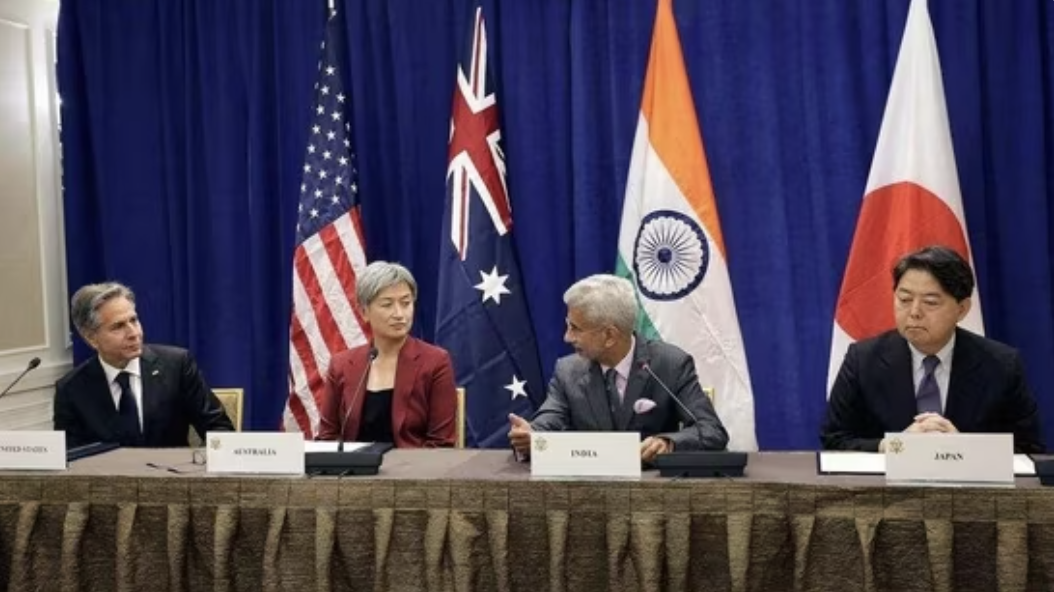
Figure 4 The ‘Quad Cyber Challenge’ exemplifies the ongoing commitment of Quad nations to enhance both awareness and proactive measures in the field of cybersecurity. Photo: Asian News International
India-Southeast Asia/ASEAN
The main event of India-Southeast Asia/ASEAN relations in 2023 was the India-ASEAN Summit held on the sidelines of the East Asia Summit hosted by Indonesia in September. This was the first ASEAN-India Summit since the elevation of India-ASEAN relations to a Comprehensive Strategic Partnership in 2022. Prime Minister Modi chaired the 20th ASEAN-India Summit during which he declared, “ASEAN is the central pillar of India’s Act East Policy…India fully supports ASEAN centrality and ASEAN’s outlook on the Indo-Pacific…[and] ASEAN holds a prominent place in India’s Indo-Pacific initiative… The 21st century is Asia’s century. It is our century.” PM Modi also “emphasized the need to complete the review of ASEAN-India FTA (AITIGA—Trade in Goods & Services Agreement) in a time bound manner…[and] presented a 12-point proposal for strengthening India—ASEAN cooperation covering connectivity, digital transformation, trade and economic engagement, addressing contemporary challenges, people-to-people contacts and deepening strategic engagement…Two Joint Statements, [including] one on Maritime Cooperation, and the other on Food Security were adopted.”
India’s Defense Minister/Ministry actively engaged Southeast Asian countries throughout the year; including through a range of low-level but ongoing efforts at increasing mutual familiarity and engagement particularly using naval diplomacy. For example, in May, within six months of the first India-ASEAN defense ministers’ meeting, the two sides were able to hold their inaugural ASEAN-India Maritime Exercise (AIME) co-hosted by the navies of India and Singapore. The exercise focused on the challenges to the governance of seas in the region, including disaster management and constabulary actions such as dealing with transnational crime given ASEAN’s diverse membership constraining exercises to address challenges of coercion by adversarial nation states. The occasion also served as an opportunity to conduct defense diplomacy including India’s Navy chief, Adm. Hari Kumar showing his Philippines’ counterpart V. Adm. Toribio D Adaci around INS Delhi and briefing him on India’s maritime capacity-building progress. The AIME also served as a springboard for follow-on engagements across Southeast Asia including the 39th India-Thailand CORPAT; Exercise Samudra Shakti with Indonesia and visiting Sihanoukville in Cambodia and Da Nang in Vietnam.
As one Indian analyst put it: “The activities undertaken during AIME 2023 were one step in the long and tortuous road leading to strengthened confidence of ASEAN in India as a benign, capable and reliable partner, they enabled India to display its indigenous shipbuilding capability and overall maritime prowess. Interoperability is a far cry: the odd exercise lasting for a few days no more results in interoperability than political statements result in meaningful outcomes. Far more will have to be done. A beginning has, however, been made. It is for leaders on both sides to follow up to ensure that this beginning results in steady progress towards a secure, stable and peaceful region.”
India-Cambodia Relations
India-Cambodia relations included both military and political exchanges. In February Lt. Gen. Hun Manet, deputy commander-in-chief of the Royal Cambodian Armed Forces and Commander of Royal Cambodian Army (and as of August ,prime minister of Cambodia) visited India in the first-ever visit by any commander of the Royal Cambodian Army. He held numerous high-level meetings, including with India’s vice president, minister of defense, external affairs minister, and deputy national security advisor, as well as India’s chief of defense staff and chief of army staff, during which the two sides reaffirmed India’s support to Cambodia by offering customized training modules for the Royal Cambodian Army. Lt. Gen. Hun Manet announced the schedule for the conduct of first Army to Army Staff Talks in Cambodia. A Bilateral Defense Cooperation Agreement signed in 2007 governs military relations covering training cooperation, Counter-IED, demining and UN Peacekeeping. Later in May, as part of the Indian Navy’s deployment to ASEAN countries, Indian Navy ships made a port call at Sihanoukville from May 11-14.
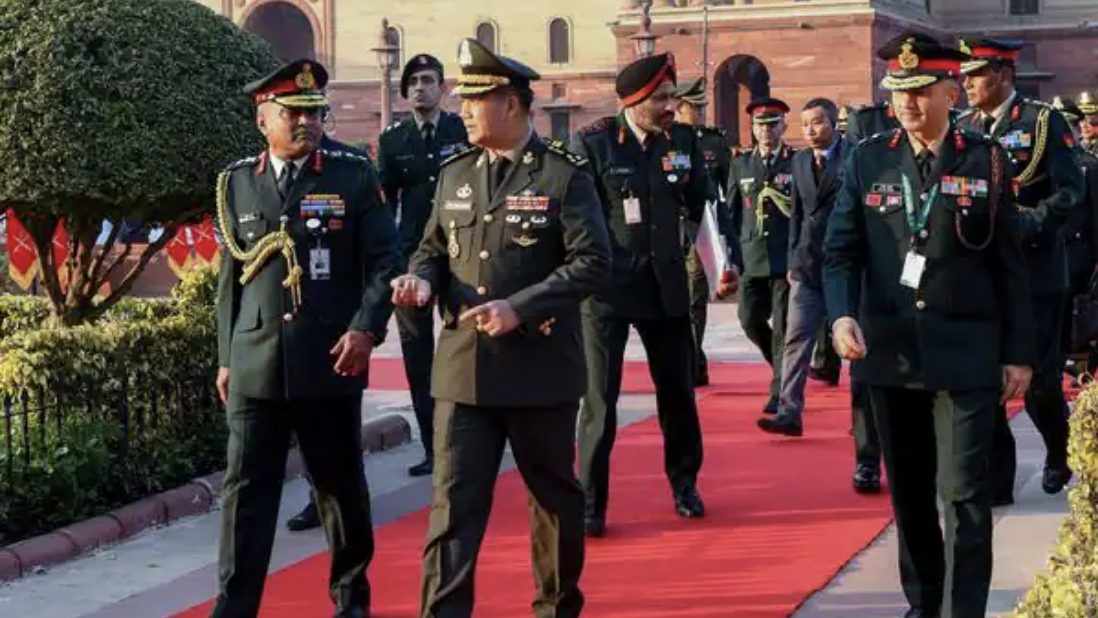
Figure 5 Chief of the Army Staff General Manoj Pande welcomes Lieutenant General Hun Manet, Commander-in-Chief of the Armed Forces and Commander of the Royal Cambodian Army, prior to inspecting the Guard of Honour, at South Block Lawn. Photo: Asian News International
India-Vietnam Relations
May 20 PM Modi met Vietnam’s Prime Minister Pham Minh Chinh in Hiroshima on the sidelines of G7 Summit and noted “the steady progress achieved in bilateral Comprehensive Strategic Partnership…”
Vietnam’s Minister of National Defense Gen. Phan Van Giang visited India in mid-June for defense and related Comprehensive Strategic Partnership consultations with Indian counterpart Minister of Defense Rajnath Singh. Currently defense engagements between the two countries comprise service-to-service ties, military-to-military exchanges, high-level visits, capacity building and training programs, cooperation in UN Peacekeeping, ship visits and bilateral exercises. During the previous year’s visit of Minister of Defense Singh’s visit to Vietnam, the two countries had signed a “Joint Vision Statement on India-Vietnam Defence Partnership towards 2030’ and a Memorandum of Understanding on “Mutual Logistics Support.” Two Indian naval vessels visited Vietnam in May as part of a deployment to Southeast Asia.
India-Philippines Relations
India-Philippines relations included the 4th Joint Defense Cooperation Committee meeting in March to review bilateral defense cooperation and discussed effective and practical initiatives to further expand the engagements. The co-chairs reaffirmed their commitment to implement 2006 agreement concerning defense cooperation…[and] to initiate measures to enhance cooperation in Defense Industry and Technology domain and look forward to greater synergy in effectively deepening bilateral cooperative engagements across the spectrum.
India-Malaysia Relations
India-Malaysia security relations, essentially defense-led, were active during the year. The main event was Indian Defense Minister Singh’s visit to Kuala Lumpur in July to consolidate bilateral defense, with focus on identifying ways to strengthen industrial cooperation Indian defense industry with capacity and capability to cooperate with Malaysian Armed Forces in its inventory modernization and maintenance plans. Minister Singh also held bilateral talks with counterpart Dato’ Seri Mohamad Hasan and called on Prime Minister Dato’ Seri Anwar bin Ibrahim and Minister of Foreign Affairs Dato’ Seri Diraja Dr Zambry Abd Kadir. Both ministers approved amendment of the Memorandum of Understanding on Defense Cooperation between India and Malaysia signed in 1993. This amendment is supposed to help expand bilateral defense cooperation. During the visit, Singh also inaugurated the Regional Office of Hindustan Aeronautics Limited (HAL) in Kuala Lumpur intended to facilitate close defense industrial collaboration between India and Malaysia and serve as a hub for the HAL’s engagement with the wider Southeast Asian region and act as a window for other Indian Defense PSUs.
The 10th meeting of the Sub Committee on Military Cooperation between India and Malaysia was held in New Delhi in July. India reportedly highlighted the potential of the Indian defense industry with capacity and capability to cooperate with Malaysia’s military shipbuilding and maintenance plans. The 12th Malaysia-India Defense Cooperation Committee (MIDCOM) meeting at the level of Defense secretary in India was held in September.
India-Indonesia Relations
Indonesia was one of only four Indo-Pacific countries Prime Minister Modi visited in 2023 (the others being Papua New Guinea, Australia, and Japan) though it was significant because India succeeded Indonesia in the G20 presidency, and Indonesia hosted the ASEAN-led East Asia Summit and India-ASEAN Summit in September 2023. PM Modi and President Widodo also held a bilateral meeting.
Defense and maritime cooperation continued between India and Indonesia with the 4th edition in May of the India-Indonesia bilateral exercise Samudra Shakti-23 incorporating an Indian Navy Dornier Maritime Patrol aircraft and Chetak helicopter and an Indonesian CN 235 Maritime Patrol Aircraft and AS565 Panther Helicopter, in July two Indian naval ships visited Jakarta in what was described as on “operational turnaround” culminating in a Maritime Partnership Exercise (MPX) at sea, the 39th coordinated patrol (CORPAT) was held in December.
India-Singapore Relations
An important defense visit was that of India’s chief of the Naval Staff (CNS), Adm. R Hari Kumar, in May 2023 to co-officiate the inaugural ceremony of the maiden ASEAN-India Maritime Exercise (AIME) being co-hosted by the Republic of Singapore Navy and Indian Navy. The CNS also called on Singapore’s minister for Defense, the chief of Defense Force, and other ASEAN navy chiefs.
India and Singapore held a number of their ongoing military exercise series, including the 13th edition of Exercise Bold Kurukshetra, a bilateral army armor exercise in March.
India-Thailand Relations
The 8th India-Thailand Defense Dialogue was held in Bangkok in April. The two sides expressed satisfaction at defense cooperation. An Indian statement noted that “bilateral defense engagements have expanded over a period of time to include wide ranging contacts between the two countries including Defense Dialogue meeting, military-to-military exchanges, high-level visits, capacity building and training programs and bilateral exercises.” Other defense activities included the 35th edition of India-Thailand Coordinated Patrol (Indo-Thai CORPAT) in May.
India-Korea Relations
The main interactions between India and Korea were the visit of South Korea’s Foreign Minister Park Jin to India in early April to mark the 50th anniversary of diplomatic relations and to review the “special strategic partnership. The next month, Prime Minister Modi met President of South Korea Yoon Suk Yeol in Hiroshima on the sidelines of the G7 Summit to review “the progress of India-Republic of Korea Special Strategic Partnership and discuss ways to strengthen bilateral cooperation, particularly in areas of trade & investment, high technology, IT hardware manufacturing, defense, semiconductors and culture.” The leaders noted the 50th anniversary of establishment of diplomatic relations.
Other exchanges included the 11th high-level meeting between Indian and Korea Coast Guards in April. The India-ROK Coast Guard HLM is focused at augmenting the operational level interaction and capacity building in the areas of Maritime Search & Rescue (M-SAR), Marine Pollution Response (MPR) and Maritime Law Enforcement (MLE).
India-Japan Relations
Japan’s Prime Minister Kishida Fumio visited India in March. The reported outcomes were modest, however, and included an exchange of notes for a tranche of the loan for the Mumbai Ahmedabad High Speed Rail. A second agreement was a Memorandum of Cooperation in the field of Japanese Language Education in India.
Prime Minister Modi traveled to Japan in May for the G7 Summit in Hiroshima where he held a bilateral meeting with Kishida on the sidelines of the Summit. “The leaders agreed on ways to further strengthen the bilateral Special Strategic and Global Partnership. Discussions focused on areas of education, skill development, tourism, Lifestyle for Environment (LiFE), green hydrogen, high technology, semiconductors and digital public infrastructure.”
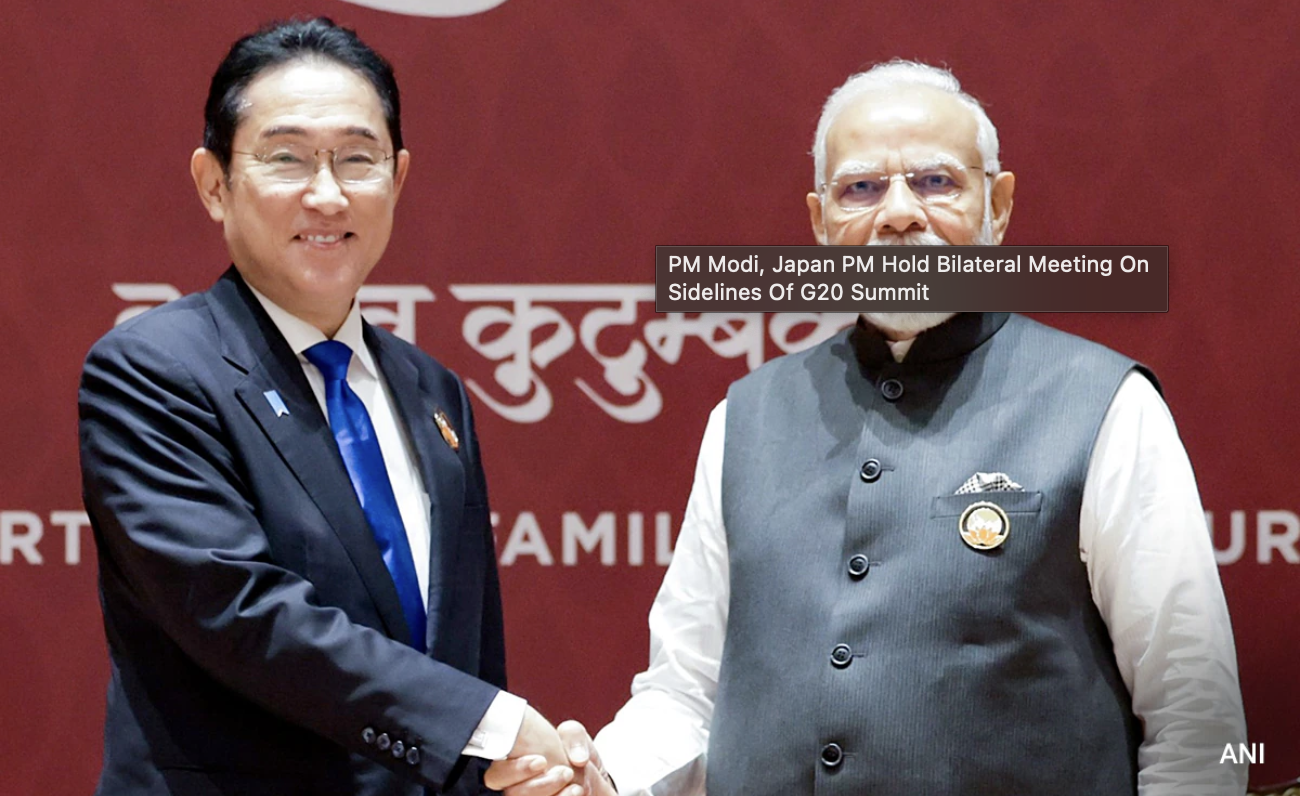
Figure 6 Prime Minister Narendra Modi with Japanese Prime Miniser Fumio Kishida on the sidelines of G20 Summit. Photo: Asian News International
Below the leaders level, India and Japan continued a number of military and defense engagements, including: the inaugural IAF-JASDF exercise Veer Guardian in January with India becoming the fifth country, after the US, Australia, the UK, and Germany, to exercise with the JASDF in Japan; the fourth edition of India-Japan Joint Military Exercise Dharma Guardian in February and Exercise Shinyuu Maitri with the Japan Air Self-Defense Force (JASDF) on the sidelines of Dharma Guardian; and a JMSDF ship visit in February at Kochi; the conduct of Maritime Partnership Exercises (MPX) with Maritime Self-Defense Force (MSDF) ship JS Suzutsuki, an Akizuki-class destroyer in the Arabian Sea in March; and the 7th edition of the bilateral Japan-India Maritime Exercise 2023 (JIMEX 23) hosted by the Indian Navy, was conducted at/off Visakhapatnam in July.
The 7th India-Japan Defense Policy Dialogue took place in New Delhi in April to discuss a wide range of issues including service-level exercises and engagements, regional security issues and cooperation in defense equipment & technology.
Conclusion
India’s relations with the Indo-Pacific in 2023 were active across defense and diplomacy. It has been five years since Prime Minister Modi laid out India’s Concept of the Indo-Pacific in his keynote remarks at Shangri-La in June 2018, four years since Modi articulated the maritime concept of the Indo-Pacific Oceans’ Initiative in 2019 at the East Asia Summit in Bangkok, and a year prior to the 10th anniversary of India’s Act East policy articulated in 2014. While there were no significant advancements or developments in India’s East Asia relations, India continued to maintain a “presence” via leader level and ministerial visits, regular and enhanced diplomatic platforms (e.g., a second 2 + 2 dialogue with Australia and a third summit with Pacific Islands leaders), and low-level but wide-ranging defense and particularly maritime engagements with a range of regional countries. As India moves to elections in the next couple of months, 2024 is likely to be a year of relatively modest maintenance and building of ties with the Indo-Pacific.
Feb. 10, 2023: 11th India-Mongolia Joint Working Group meets for the first time in person since the pandemic in New Delhi to review bilateral defense cooperation.
Feb. 15-16, 2023: External Affairs Minister Dr. S. Jaishankar makes his first visit to Fiji to speak at the 12th World Hindi Conference and meet Prime Minister Rabuka after which they held a joint press conference.
Feb. 16-18, 2023: Jaishankar visits Australia where he met counterpart Foreign Minister Penny Wong, as well as Minister of Defense Marles and Prime Minister Albanese and delivered the keynote address at the inaugural Raisina@Sydney Conference.
March 2, 2023: EAM Jaishankar meets Chinese Foreign Minister Qin Gang on the sidelines of the G20 Foreign Ministers’ Meeting in New Delhi. Jaishankar said talks with his Chinese counterpart “focused on addressing current challenges to the bilateral relationship, especially peace and tranquility in the border areas.” “There are real problems in that relationship that need to be looked at, that need to be discussed very openly and candidly between us. That’s what we sought to do today,” Jaishankar told reporters.
March 10-11, 2023: Australian Prime Minister Anthony Albanese makes a State Visit to India.
April 4-6, 2023: South Korea’s Foreign Minister Park Jin visits India to mark the 50th anniversary of diplomatic relations and to review the “special strategic partnership.”
April 27, 2023: India’s Defense Minister (Raksha Mantri) Rajnath Singh meets China’s State Councilor and Minister of National Defense Gen. Li Shangfu in New Delhi. The Raksha Mantri “categorically conveyed [emphasis added] that development of relations between India and China is premised on prevalence of peace and tranquility at the borders. He added that all issues at the LAC need to be resolved in accordance with existing bilateral agreements and commitments. He reiterated that violation of existing agreements has eroded the entire basis of bilateral relations and disengagement at the border will logically be followed with de-escalation.”
May 20, 2023: Modi attends G7 Summit in Hiroshima, and participates in the third in-person Quad leaders meeting.
May 20, 2023: Modi meets Vietnam’s Prime Minister Pham Minh Chinh on the sidelines of the G7 Summit and notes “the steady progress achieved in bilateral Comprehensive Strategic Partnership…”
May 20, 2023: Modi meets President of South Korea Yoon Suk Yeol on the sidelines of G7 Summit to review “the progress of India-Republic of Korea Special Strategic Partnership and discusses ways to strengthen bilateral cooperation, particularly in areas of trade & investment, high technology, IT hardware manufacturing, defense, semiconductors and culture.” The leaders note the 50th anniversary of establishment of diplomatic relations.
May 20, 2023: Modi holds a bilateral meeting with Japan’s Prime Minister Kishida Fumio on the sidelines of the G7 Summit, the second bilateral meeting of the year following Kishida’s visit to India in March, where the leaders “agreed on ways to further strengthen the bilateral Special Strategic and Global Partnership. Discussions focused on areas of education, skill development, tourism, Lifestyle for Environment (LiFE), green hydrogen, high technology, semiconductors and digital public infrastructure.”
May 22, 2023: Modi holds a meeting with Prime Minister Chris Hipkins of New Zealand on the sidelines of the 3rd Summit of the Forum for India-Pacific Islands Cooperation, their first interaction.
May 22-24, 2023: Modi visits Australia for “discussions focused on cooperation in defense and security, trade and investment, new and renewable energy, green hydrogen, critical minerals, education, migration and mobility and people to people ties.” The prime minister notes that “I am visiting Australia within two months of my friend Prime Minister Albanese’s visit to India. This is our sixth meeting in the past one year.”
May 22, 2023: Modi meets for the first time with Prime Minister of the Republic of Fiji Sitiveni Ligamamada Rabuka. On behalf of Fijian President Ratu Wiliame Maivalili Katonivere, Rabuka bestows Modi with the highest honor of the Republic of Fiji, the Companion of the Order of Fiji.
May 22, 2023: Modi, jointly with PNG Prime Minister Marape, hosts the 3rd Forum for India-Pacific Islands Cooperation (FIPIC III Summit). Launched in 2014, FIPIC involves India and 14 Pacific Island Countries (PICs): Cook Islands, Federated States of Micronesia, Fiji, Kiribati, Nauru, Niue, Palau, Papua New Guinea, Republic of Marshall Islands, Samoa, Solomon Islands, Tonga, Tuvalu, and Vanuatu.
May 22-23, 2023: Modi visits Papua New Guinea for a bilateral meeting with PNG Prime Minister James Marape and the 3rd Summit of the Forum for India-Pacific Islands Cooperation, co-hosted by PNG. This was the first visit by an Indian prime minister to Papua New Guinea, and Marape in a “special gesture” received Modi at the airport. conferred Prime on him the Grand Companion of the Order of Logohu (GCL), the highest civilian award of PNG.
May 29-31, 2023: Norodom Sihamoni, king of Cambodia, makes his first state visit to India. Modi meets him and “resolve[s] to strengthen the bilateral partnership with Cambodia across diverse areas including capacity-building.” King Sihamoni thanked Modi “for India’s ongoing initiatives in development cooperation, and conveyed his appreciation and best wishes for India’s Presidency of G20.”
June 30-July 1, 2023: India’s defense secretary pays official visit to Myanmar for meetings with the Chairman, State Administrative Council Sr. Gen. Min Aung Hlaing in Nay Pyi Taw, Defense Minister of Myanmar Gen (Retd.) Mya Tun Oo and held meetings with Commander-in-Chief, Myanmar Navy Adm. Moe Aung, and Chief of Defense Industries Lt. Gen. Khan Myint Than. According to an Indian press release, the focus of discussions was “maintenance of tranquility in the border areas, illegal trans-border movements and transnational crimes such as drug trafficking and smuggling…[and] [b]oth sides reaffirmed their commitment to ensure that their respective territories would not be allowed to be used for any activities inimical to the other.”
July 10-11, 2023: India’s Defense Minister Rajnath Singh visits Malaysia to meet with counterpart Defense Minister Dato’ Seri Mohamad Hasan to focus on further consolidating bilateral defense cooperation and the Enhanced Strategic Partnership.
July 13-14, 2023: EAM Jaishankar visits Indonesia for the Foreign Ministers’ Meetings under the ASEAN framework for the ASEAN-India summit, the East Asia Summit and ASEAN Regional Forum. He also meets with his bilateral counterpart.
July 15-18, 2023: EAM Jaishankar travels to Bangkok for the 12th Foreign Ministers’ Meeting of Mekong Ganga Cooperation (MGC) Mechanism on 16 July, and attends the BIMSTEC Foreign Ministers’ Retreat on July 17.
July 17-31, 2023: An Indian army contingent of 40 plus personnel participates in multinational joint exercise Ex Khan Quest in Mongolia followed by the 15th edition of the bilateral joint military exercise Nomadic Elephant-23.
Sept. 6-7, 2023: Modi travels to Jakarta, Indonesia for bilateral visits including with President Joko Widodo of Indonesia and to attend the 20th ASEAN-India Summit and the 18th East Asia Summit. This is the first ASEAN-India Summit since the elevation of India-ASEAN relations to a Comprehensive Strategic Partnership in 2022.
Sept. 7, 2023: Modi chairs the 20th ASEAN-India Summit during which he declares, “ASEAN is the central pillar of India’s Act East Policy,…India fully supports ASEAN centrality and ASEAN’s outlook on the Indo-Pacific,…[and] ASEAN holds a prominent place in India’s Indo-Pacific initiative… The 21st century is Asia’s century. It is our century.” Modi also “emphasized the need to complete the review of ASEAN-India FTA (AITIGA) in a time bound manner…[and] presented a 12-point proposal for strengthening India—ASEAN cooperation covering connectivity, digital transformation, trade and economic engagement, addressing contemporary challenges, people-to-people contacts and deepening strategic engagement…Two Joint Statements, including one on Maritime Cooperation, and the other on Food Security were adopted.”
Sept. 10, 2023: Modi meets South Korea’s President Yoon in Delhi on the sidelines of the India-hosted G20 Summit. “The leaders noted that this year marks the 50th anniversary of establishment of diplomatic relations. They reviewed progress on various areas of bilateral Special Strategic Partnership, including in trade and investment, defense production, semiconductors and EV battery technology.”
Oct. 15-18, 2023: EAM Jaishankar visits Vietnam for the 18th Meeting of the India-Vietnam Joint Commission on Economic, Trade, Scientific, and Technological Cooperation co-chaired with Bui Thanh Son, minister of foreign affairs of Vietnam, reviews the Comprehensive Strategic Partnership. He also meets members of the Indian community and unveils Mahatma Gandhi’s Bust in Ho Chi Minh City.
Oct. 19-21, 2023: EAM Jaishankar visits Singapore to review bilateral cooperation, explore collaboration in emerging areas including digitalization and skills development under the India-Singapore Ministerial Roundtable, and exchange views on regional and global developments. He calls on President President Tharman Shanmugaratnam, Deputy Prime Minister and Minister for Finance Lawrence Wong, and Senior Minister and Coordinating Minister for National Security Teo Chee Hean. He also meets Minister for Defense Ng Eng Hen, Minister for Foreign Affairs Dr Vivian Balakrishnan, Minister for Home Affairs and Law K Shanmugam and Minister for Trade and Industry Gan Kim Yong.
Nov. 20, 2023: India and Australia hold their 2nd 2 + 2 Defense and Foreign Ministers Dialogue.